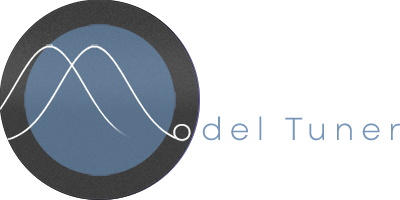
The model_tuner library is a versatile and powerful tool designed to facilitate the training, evaluation, and tuning of machine learning models. It supports various functionalities such as handling imbalanced data, applying different scaling and imputation techniques, calibrating models, and conducting cross-validation. This library is particularly useful for model selection, hyperparameter tuning, and ensuring optimal performance across different metrics.
Prerequisites
Before installing model_tuner, ensure your system meets the following requirements:
Python Version
model_tuner requires Python 3.7 or higher. Specific dependency versions vary depending on your Python version.
Dependencies
The following dependencies will be automatically installed when you install model_tuner via pip:
For Python 3.7:
joblib==1.3.2tqdm==4.66.4catboost==1.2.7pip==24.0numpy==1.21.4pandas==1.1.5scikit-learn==0.23.2scipy==1.4.1imbalanced-learn==0.7.0scikit-optimize==0.8.1xgboost==1.6.2
For Python 3.8 to 3.10:
joblib==1.3.2tqdm==4.66.4catboost==1.2.7pip==24.2setuptools==75.1.0wheel==0.44.0numpy>=1.19.5, <2.0.0pandas>=1.3.5, <2.2.3scikit-learn>=1.0.2, <1.4.0scipy>=1.6.3, <1.11imbalanced-learn==0.12.4scikit-optimize==0.10.2xgboost==2.1.2
For Python 3.11 and higher:
joblib==1.3.2tqdm==4.66.4catboost==1.2.7pip==24.2setuptools==75.1.0wheel==0.44.0numpy>=1.19.5, <2.0.0pandas>=1.3.5, <2.2.2scikit-learn==1.5.1scipy==1.14.0imbalanced-learn==0.12.4scikit-optimize==0.10.2xgboost==2.1.2
💾 Installation
You can install model_tuner directly from PyPI:
pip install model_tuner📄 Official Documentation
https://uclamii.github.io/model_tuner
🌐 Author Website
⚖️ License
model_tuner is distributed under the Apache License. See LICENSE for more information.
📚 Citing model_tuner
If you use model_tuner in your research or projects, please consider citing it.
@software{funnell_2024_12727322,
author = {Funnell, Arthur and
Shpaner, Leonid and
Petousis, Panayiotis},
title = {Model Tuner},
month = jul,
year = 2024,
publisher = {Zenodo},
version = {0.0.23a},
doi = {10.5281/zenodo.12727322},
url = {https://doi.org/10.5281/zenodo.12727322}
}Support
If you have any questions or issues with model_tuner, please open an issue on this GitHub repository.
Acknowledgements
This work was supported by the UCLA Medical Informatics Institute (MII) and the Clinical and Translational Science Institute (CTSI). Special thanks to Dr. Alex Bui for his invaluable guidance and support, and to Panayiotis Petousis for his original contributions to this codebase.

